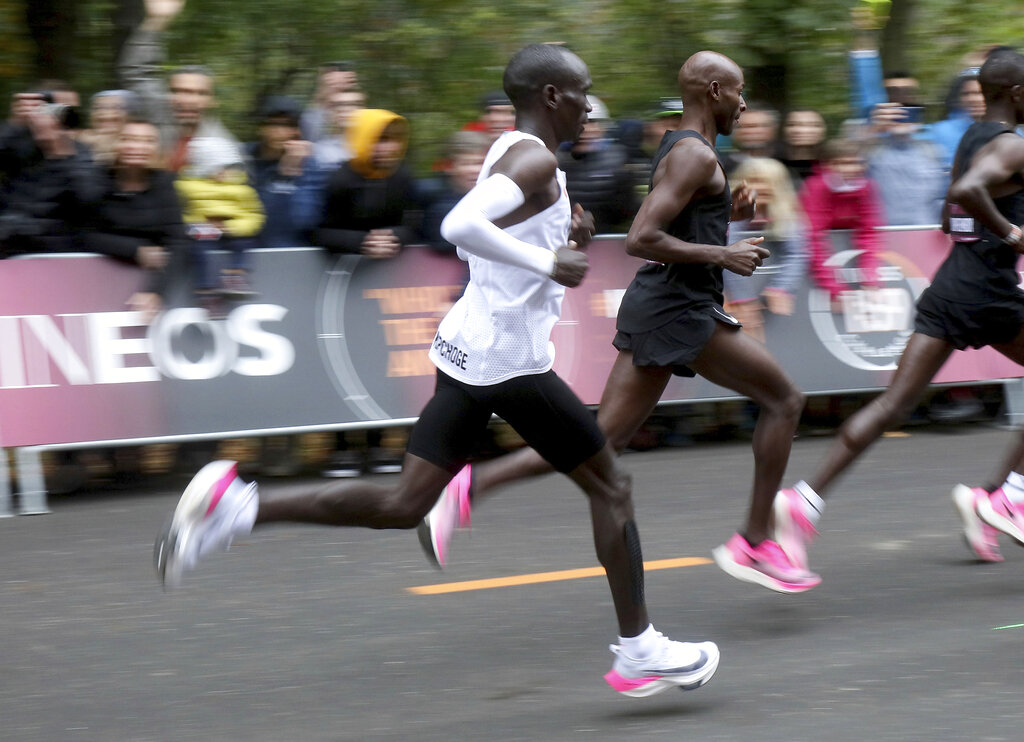
FILE – In this file photo dated Saturday, Oct. 12, 2019, Marathon runner Eliud Kipchoge from Kenya running the INEOS 1:59 Challenge to finish in 1:59:40 in Vienna, Austria, to become the first human ever to run a marathon under two hours. World Athletics published updated guidelines on Friday Jan. 31, 2020, which limited the use of prototype shoes like the high-tech Nike style worn in a sub-2 hour marathon run by Eliud Kipchoge in Vienna in October 2019. (AP Photo/Ronald Zak, FILE)
MONACO— World Athletics cleared distance runners to keep wearing a favored Nike design even though it acknowledged on Friday shoe technology poses a risk to the sport.
The governing body published updated guidelines which limited the use of prototype shoes like the high-tech Nike style worn in a sub-2 hour marathon run by Eliud Kipchoge in Vienna in October.
Independent research showed “sufficient evidence to raise concerns that the integrity of the sport might be threatened by the recent developments in shoe technology,” the Monaco-based governing body said.
An expert working group will be created to assess new shoes entering the market.
Still, the more established Nike style called Vaporfly, increasingly favored by top marathon runners, can be worn.
World Athletics set a guideline taking effect on April 30 that a shoe must have been available to buy for at least four months to be eligible for use in competition.
“If a shoe is not openly available to all then it will be deemed a prototype and use of it in competition will not be permitted,” the statement said.
The Tokyo Olympics open in just under six months.
“As we enter the Olympic year, we don’t believe we can rule out shoes that have been generally available for a considerable period of time,” World Athletics president Sebastian Coe said, “but we can draw a line by prohibiting the use of shoes that go further than what is currently on the market while we investigate further.
“I believe these new rules strike the right balance by offering certainty to athletes and manufacturers as they prepare for the Tokyo 2020 Olympic Games.”